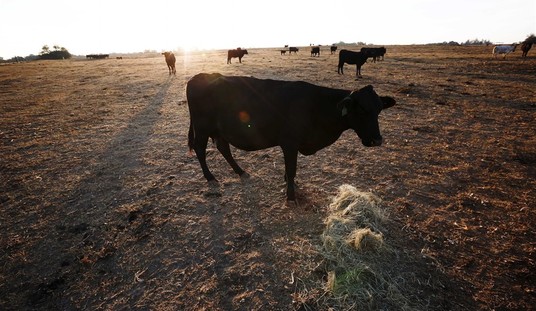Well, sort of yes and sort of no. She’s right that most conservatives welcome atheist fellow travelers. I remember telling a friend before HA launched that I’d be writing for a righty website and him telling me that I should hide my nonbelief, but I didn’t and it’s never been a problem. The most static I catch for it is when I’ve written something extra RINO-y and a commenter grumbles that we shouldn’t expect any better from the godless. Even that’s rare; the smoking gun of RINOism that’s most often cited by my righty critics is support for gay marriage, not atheism. So yeah, certainly this is no bar to entry into the commentariat. In fact, more conservative atheists seem to be writing about their dual identities. See, e.g., Robert Tracinski in April at the Federalist making “an atheist’s case for religious liberty” or Charles Cooke back in February arguing that godlessness and conservatism aren’t incompatible after all.
I think Cupp’s right too that righty atheists on average respect religion more than their liberal counterparts do. That’s probably mainly a function of exposure: If you’re a conservative of whatever demographic and whatever educational level and you associate mostly with other conservatives, chances are you’re going to run into and end up being friends with some devoutly religious people. I’m not so sure that’s true on the left. If you’re a highly educated, reasonably well-to-do liberal — coincidentally, the same niche that most of the left’s commentariat comes from — devoutly religious friends may be hard to come by. (Call it epistemic closure.) Just as polls on gay marriage show support for SSM rising steeply among people who have at least one acquaintance who’s come out of the closet, I suspect that knowing religious people whom you respect inevitably softens your view on the value of religion.
But look: Certainly there’s some wariness about atheism within conservatism. Go look at one of those polls in which a variety of supposedly undesirable traits in a would-be president are listed and people are asked to name which ones would make you less likely to vote for him/her. Atheism is always at or near the top of the list. That’s not the fault of conservatism alone; plenty of religious Democrats look askance at atheists too, and if you doubt that, ask yourself how many Democrats in Congress have been willing to cop to nonbelief while in office. Offhand the only one I can think of is Pete Stark, who was later ousted in a primary. Barney Frank copped to being an atheist only after he retired, which is telling — it was safer for him politically to admit to being gay than to doubting God’s existence. If you polled Republicans and Democrats today and asked them whether they’d be positive, negative, or neutral about having a president who identifies as atheist, I guarantee that both sides would tilt negative and feel reasonably confident (considering that there are more liberal atheists than conservative ones) that conservatives would tilt more negative than liberals would. See Cooke’s piece linked above for an insight as to why. The most common complaint from religious people about atheists in my experience is that we lack a moral foundation; they can always resort to the Good Book for guidance, but what does the atheist resort to? “The Selfish Gene”? Logically, that concern will be more common among religious people than it will among the less religious, so go figure that conservatives, a more religious group, might show that concern more strongly. I wouldn’t call that “hostility” to atheism as much as, let’s say, skepticism of it, but it’s there. And yes, it’s there among plenty of Democrats too.








Join the conversation as a VIP Member